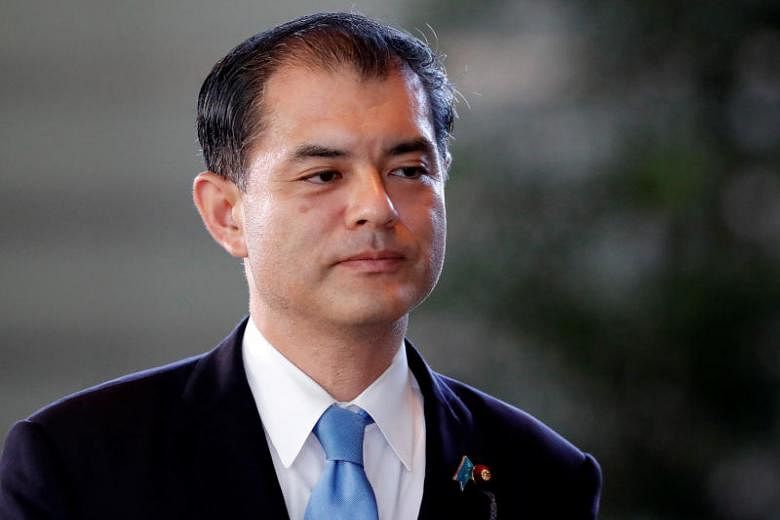TOKYO - Despite its much-hyped commitment to build a more inclusive society, Japan reeled from two discrimination scandals this week.
Education Minister Masahiko Shibayama said on Tuesday (Oct 23) that an ongoing probe into gender bias at 81 medical universities found that the practice of unfairly docking marks in entrance exam scripts of female applicants appeared to be "quite widespread". He denounced the practice as a "betrayal of social trust".
Expected to be completed by year end, the probe was sparked by the Tokyo Medical University's disclosure this August that it has been deliberately making it tougher for female applicants to enrol.
More than 20 women are now demanding compensation in a class action suit against the routine act that began in 2006, their lawyers said on Wednesday.
Separately, the government was found to have padded the number of disabled employees in its hire so that it can meet its own legal quota. The inflated count of 3,700 also included dead and retired people, a probe on Monday found.
Sociologist Emi Kataoka of Tokyo's Komazawa University told The Straits Times that it was a travesty that people were marginalised because they failed to meet certain traditional ideals.
"Both scandals relate to the strong masculine dominance in Japanese employment practices," she said. "Japan is still not fulfilling the democratic rules of fairness, equality or meritocracy."
Dr Kataoka said the government would need to show much stronger political will to take the lead and prove that it was not merely paying lip service to its "equality" pledge.
A panel into the Tokyo Medical University's score rigging found on Tuesday that 69 applicants, including 55 women, with passing scores had been denied entry in 2017 and 2018.
This was done under the instructions of former board of regents chairman Masahiko Usui and former president Mamoru Suzuki, who have both been charged over corruption in connection with a separate case. They are accused of offering a place to the son of a senior education ministry bureaucrat, who has now been sacked, in exchange for ministry subsidies.
Domestic media have named two more Tokyo-based universities - Showa University and Juntendo University - for engaging in score manipulation.
Mr Shibayama said his ministry will not name and shame any universities for now, urging the implicated schools to come clean and change their practices.
Meanwhile, the panel looking into the government's data padding of disabled persons said on Monday that questionable human resource practices dated back at least 20 years, and that there was arbitrary interpretation in the civil service of what counts as a disability.
Some 3,700 people were wrongly recognised as disabled, a figure revised up from the 3,460 previously reported.
This means the percentage of disabled people hired by the government stood at 1.17 per cent as of June last year, way below the 2.5 per cent that it claimed to have achieved. The legal quota for the government had at the time been 2.3 per cent, but this was revised up to 2.5 per cent in April this year.
"There is no room for excuses," panel chief Gan Matsui, a former public prosecutor, said. "It is doubtful that sincere efforts were made to promote the employment of the disabled."
The Japanese government, in turn, pledged on Monday to employ at least 4,073 people with disabilities by March 2020 to meet the shortfall.


